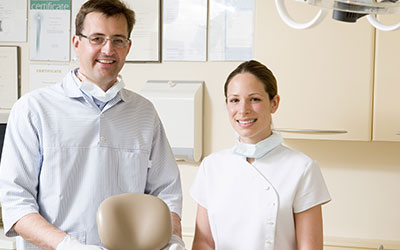Image Credit:
Image Credit:

Finding and choosing the right dental partner for you can be an overwhelming and stressful process. Dentists are well aware that this partnership may be the single most important professional relationship of their lives. In the same way that you don’t want to find yourself stuck in an unsuccessful partnership, you also don’t want to make mistakes that could cost you a good potential associate.
The best way to assess a potential associate is to create a productive interview process. This will allow you to gauge the long and short-term goals of the associate and make sure they are compatible with your own goals. This process will also allow you to detect any potential problems that may arise in the partnership.
Once you’ve shared goals and found a candidate that will be the best fit for you and your office, you can then begin to discuss the specifics. These specifics will include compensation, benefits, and legal details. It’s important to save the legal discussions until you’ve both decided you want to go into practice together. If you jump the gun on this point, it can turn a potentially successful partnership into a contest. Wait to bring in lawyers until after you’ve agreed on the other details.
Below, we have broken partnership questions down into long-term and short-term questions. You can use our list and omit any questions that may apply. Feel free to add in your own questions, as well:
Long-Term Questions
Short-Term Questions
Keep in mind that it’s ok to agree to disagree occasionally. In fact, one of the best things about having an associate is having someone with different strengths and interests than you, as well as someone who doesn’t always see things in the same way that you do.
In the end, the best thing you can do to gauge compatibility is to engage in a constructive conversation with your potential associate. You’ll probably need to conduct more than one interview to really sort out the details. For help with an existing partnership or for more tips on how to choose an associate, please contact CTC Associates.
Whether you're a seasoned dental professional planning your next big move or just beginning to explore the possibilities of buying or selling a dental practice, you've come to the right place. Our blog is designed to provide valuable insights, expert advice, and the latest industry trends to help you navigate the complexities of dental practice transitions. With decades of experience serving Colorado, Utah, New Mexico, Idaho, Wyoming, Washington, Alaska, and Hawaii, we are your trusted partners in building successful dental careers. Explore our articles and discover how we can support your journey toward achieving your professional goals.













